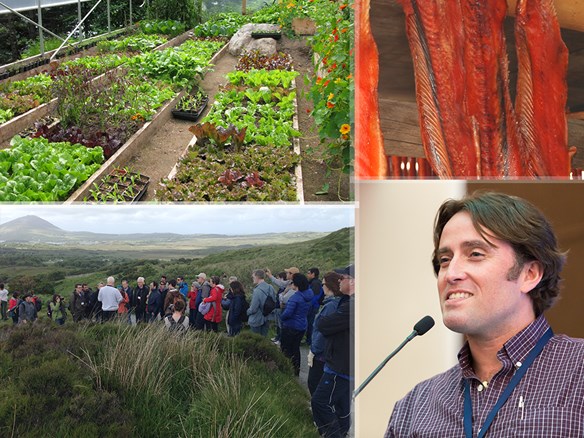Experts and graduate students from around the world will spend two weeks at the University of Alaska Fairbanks discussing rural policy and sustainability at the thirteenth summer institute of the International Comparative Rural Policy Studies (ICRPS) program. ICRPS Summer Institutes are held in North America and Europe in alternating years.
The theme of this year’s institute is “Northern Perspectives on Global Challenges.” Participants will hear about issues such as rural education, climate change, food security, and migration. They will also enjoy several field trips, including to Calypso Farm and Ecology Center, and also to the Chena Hot Springs Resort, where they will learn about efforts there to harness renewable energy.

Since 2004, over 300 graduate students from North America and Europe have benefited from the innovative blend of classroom instruction, rural visits, and research meetings.
This year, the ICRPS institute is hosted by Sustainable Futures North (SFN), a research project funded in part by grants from the National Science Foundation and the US Department of Agriculture. SFN’s principal investigator, Dr. Philip Loring, says that this institute is an “opportunity to expose the best and brightest minds thinking about rural issues to the unique challenges being experienced in the North.” Loring is an adjunct faculty at the Institute of Northern Engineering, and an assistant professor at the University of Saskatchewan.
“Each year, the summer institute provides a venue for students and faculty from universities in Europe, Canada, Mexico, and the US, to learn both about the issues that rural people face but also how best to communicate science so that it can inform rural policy,” says Loring.
Next year, the Institute returns to Europe, and will be held in Madrid.
Partial Funding for the ICRPS Summer Institute is provided by the National Science Foundation (PLR-1263853) and by the US Department of Agriculture Higher Education Challenge Grants Program (C00041710-3).
For more information, please contact Dr. Loring at ploring@alaska.edu and see our website:
http://2016.icrps.org
Images courtesy of (clockwise, from top right): Philip Loring, the Marine Environmental Prediction and Response Network (MEOPAR), Wayne Kelly, and Philip Loring.